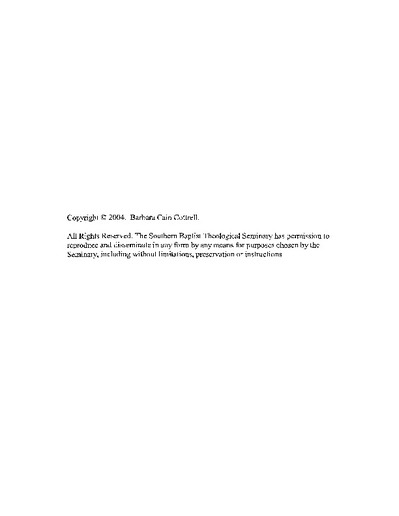| dc.description.abstract | The research study examined the leadership training practices: sense of urgency, envisioning, influencing, communicating, team building, risk taking, and anchoring among volunteer mentors in nonprofit Christian organizations. The study was approached with the assumption that many leadership practices were not present in the volunteer mentor training and their inclusion would enhance the performance or efficiency of the volunteer mentor as they serve the at-risk population.
The researcher used a two phase methodology which allowed for assumptions that any inherent biases in particular data sources, investigator, and methods were neutralized. The leadership training practices were viewed using both qualitative and quantitative approaches. In Phase 1 (qualitative) eight respondents were interviewed; and in Phase 2 (quantitative), one hundred and two respondents participated by responding to a Likert scale questionnaire. The volunteer mentor population and the sample were described with great precision. Protocols used to select and delimit the samples were described in detail. Limitations in the generalizations of the findings of the study to other samples and/or populations were stated. The development and validation of the data instruments to be used to collect data from the samples were described (see Appendix 1).
Based on the responses of the volunteer mentors, the leadership practices: sense of urgency, influencing, communicating, and team building were perceived to be significantly present during training. Risk taking, anchoring, and envisioning were the leadership practices perceived by the volunteer mentors as not significantly present in the training. There were more leadership practices present in the training of volunteer mentors than the researcher assumed. | en_US |

